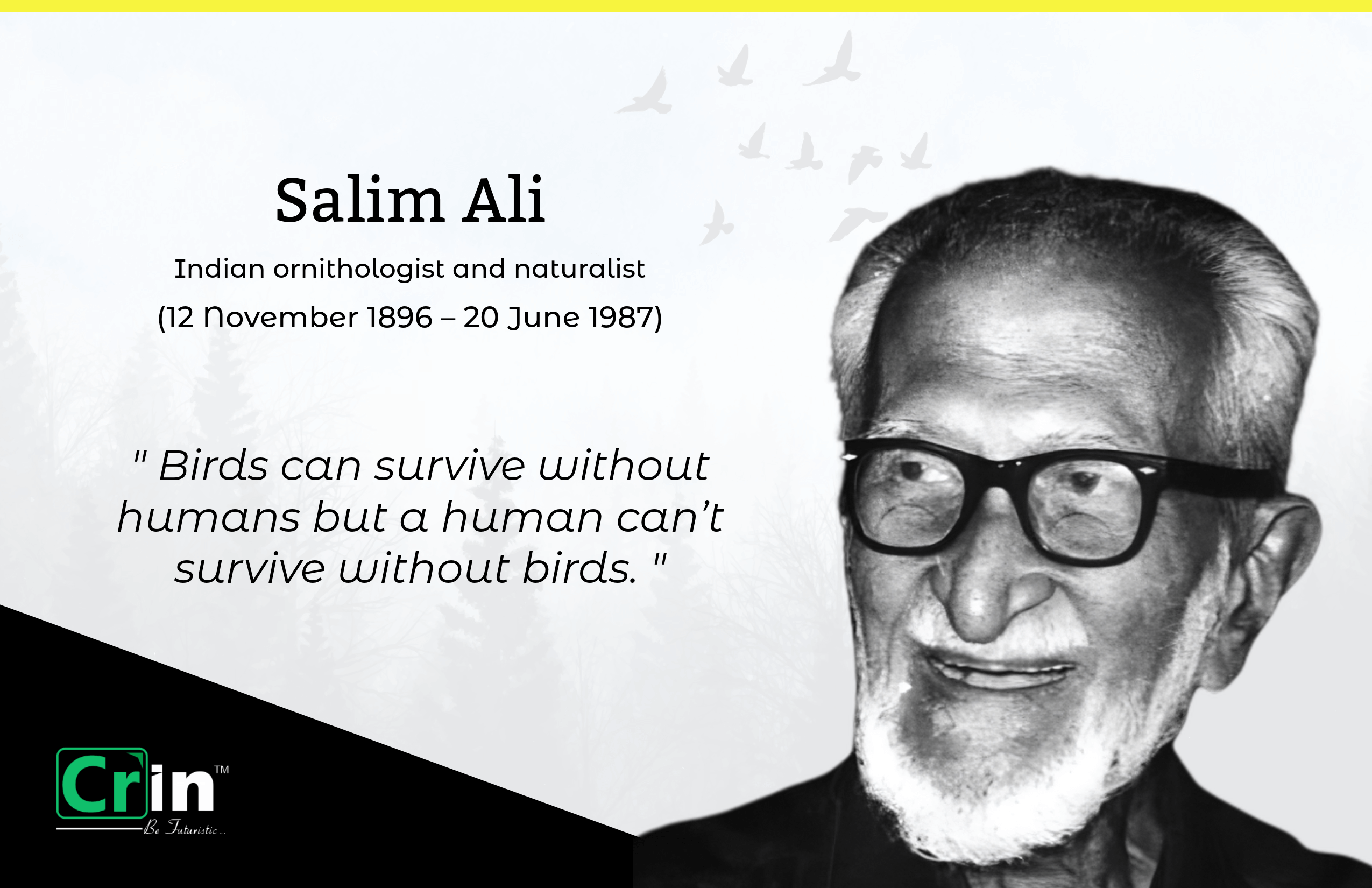Salim Ali, often referred to as the “Bird Man of India,” was a pioneering ornithologist whose extensive work and research have left an indelible mark on the field of ornithology and wildlife conservation in India. Born on November 12, 1896, in Mumbai, Salim Ali’s passion for birds and his tireless efforts to study and protect them have made him a revered figure in both Indian and international scientific communities.
Early Life and Education
Salim Moizuddin Abdul Ali was born into a well-to-do family in Mumbai. However, tragedy struck early in his life when he lost his parents at a young age. He was subsequently raised by his maternal uncle, Amiruddin Tyabji, who played a pivotal role in shaping his interests in natural history. It was during his childhood, while exploring the gardens and woods of Mumbai, that young Salim developed a fascination for birds.
After completing his schooling at St. Xavier’s High School in Mumbai, Ali enrolled at St. Xavier’s College to study zoology. However, due to health issues, he had to discontinue his formal education and recuperate in the family estate in Tamil Nadu. This period of convalescence provided him with ample opportunity to observe and study birds in their natural habitat, further deepening his interest in ornithology.
Career and Contributions to Ornithology
Salim Ali’s formal entry into the world of ornithology began with a chance encounter with W.S. Millard, the honorary secretary of the Bombay Natural History Society (BNHS). Millard introduced Ali to the scientific study of birds and encouraged him to pursue his interest further. This mentorship proved invaluable, and Ali’s association with BNHS became a cornerstone of his career.
Research and Field Studies
Salim Ali embarked on numerous bird surveys across the Indian subcontinent, meticulously documenting bird species, their behaviors, and habitats. His first significant field study was conducted in 1930-31 in the princely state of Hyderabad, where he conducted an extensive survey of the avifauna. This work laid the foundation for his later surveys in various regions, including Travancore, Cochin, the Eastern Himalayas, and the Andaman and Nicobar Islands.
Ali’s field studies were characterized by their rigor and attention to detail. He was known for his patience and perseverance, often spending months in remote locations to observe and record bird species. His contributions to ornithology were not limited to mere identification of species; he provided comprehensive insights into their ecology, behavior, and conservation needs.
Publication of “The Book of Indian Birds”
One of Salim Ali’s most significant contributions to ornithology was the publication of “The Book of Indian Birds” in 1941. This book, written in a lucid and accessible style, became a seminal work for both amateur bird watchers and professional ornithologists. It provided detailed descriptions of Indian bird species, along with illustrations and information on their habitats and behaviors. The book’s popularity and impact were immense, inspiring generations of bird enthusiasts and researchers.
Advocacy for Wildlife Conservation
Salim Ali was not just a scientist; he was also a passionate advocate for wildlife conservation. He recognized the threats posed by habitat destruction, hunting, and environmental degradation to India’s rich avifauna. Throughout his life, he campaigned tirelessly for the protection of bird habitats and the establishment of bird sanctuaries.
Role in the Establishment of National Parks and Sanctuaries
Ali played a pivotal role in the creation of several national parks and bird sanctuaries in India. His efforts were instrumental in the establishment of the Bharatpur Bird Sanctuary (now Keoladeo National Park) in Rajasthan, which has become one of the most important bird sanctuaries in the world. His advocacy also contributed to the protection of other key habitats, including the Silent Valley in Kerala and the Ranganathittu Bird Sanctuary in Karnataka.
Involvement with International Conservation Organizations
Salim Ali’s expertise and contributions to ornithology were recognized globally, and he served on the advisory boards of several international conservation organizations. He was a key figure in the International Council for Bird Preservation (now BirdLife International) and collaborated with leading ornithologists and conservationists worldwide. His global perspective on bird conservation helped to elevate the importance of preserving avian diversity on an international scale.
Legacy and Honors
Salim Ali’s legacy in the field of ornithology and conservation is profound. His pioneering research, advocacy for wildlife protection, and contributions to the scientific community have left an enduring impact.
Awards and Recognition
In recognition of his outstanding contributions, Salim Ali received numerous awards and honors throughout his lifetime. These included the Padma Bhushan in 1958 and the Padma Vibhushan in 1976, two of India’s highest civilian awards. He was also awarded the J. Paul Getty Wildlife Conservation Prize in 1975, further acknowledging his significant impact on wildlife conservation.
Continued Influence
Salim Ali passed away on June 20, 1987, but his influence continues to be felt. The BNHS remains a leading organization in wildlife research and conservation, carrying forward his legacy. Numerous educational institutions, scholarships, and awards have been established in his name to honor his contributions and inspire future generations of ornithologists and conservationists.
For detailed information, Kindly visit Wikipedia – Salim Ali
